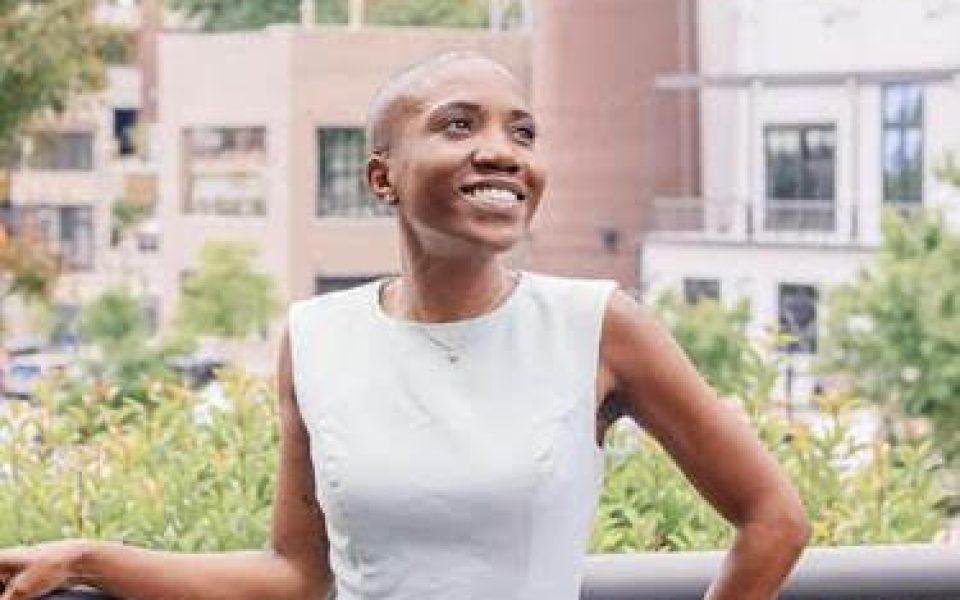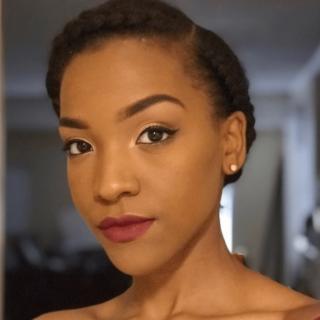Abrea Armstong is so down for Winston-Salem she’s got a camel tattooed on her arm.
Conversely, she’s left her mark in the city where she was born and raised, running communications for the Innovation Quarter during the COVID-19 pandemic and racial reckoning of 2020 and serving as president of the Winston-Salem Urban League Young Professionals. She was part of the inaugural class of the 20 in their 20s and in Outstanding Voice in Diversity by the Triad Business Journal, listed in 40 Under 40 Most Influential African-Americans in the Triad by Black Business Ink Magazine and a 2019 recipient of Leadership Award by the Winston-Salem Chamber of Commerce. She was also the winner of the 2022 City of Winston-Salem MLK Young Dreamer Award and the 2023 President’s Volunteer Service Award.
On Dec. 4, 2023, Armstrong served her first day as executive director of Triad Cultural Arts, an organization aiming to “preserve, interpret and commemorate the heritage of Black Americans for all people.” In our conversation, Armstrong spoke about being selected for the position, what she’s learned in previous roles in Winston-Salem and her plans for the future of TCA.
Congratulations on your new position! How does it feel to be named Triad Cultural Arts’ executive director, especially as a young, Black woman?
As a true millennial, I’m like, “I’m an adult now.” I think it’s really important that we as Black women understand that we cannot educate our way to success. So often, we’ll go back to school and get another degree in order to get that next job, especially when it’s a pivot from your previous career.
What I hope my appointment demonstrates is that it’s really through action that you’re able to be successful. I’m grateful that I took the time to volunteer and be the Winston-Salem Urban League Young Professionals president for two years, and that when I was at Innovation Quarter doing marketing that I was really intentional about building relationships with community partners. Back then, it was because I was being nosey because I needed stories to write for Innovation Quarter, but that information becomes useful in ways you may not know when you first receive it. I want this to be a testament of the value of experience but also how important it is to nurture your homegrown talent.
What motivated you to apply for the position, or was this something that you were sought out and chosen for?
I’m really grateful that I did all the work that I just mentioned because this is not a position that I sought by any means. They called me, and this is not the first time this has happened, and that’s exactly why I tell Black women, “You need to be visible. Don’t just do the work. You need to make sure the community knows who is doing the work.” We love to be humble, but nah, sis. It’s 2024. All of our big ones that we’re doing, we’re putting our name on it.
The board chair, Carol Davis, called me and said, “Hey, I’ve got this position as ED, would you be interested?” And I said, “Sure, we can talk about it.” We talked about it and here we are.
As you mentioned, you handled the communications for Innovation Quarter during the pandemic, and you’re a former president of the Winston-Salem Urban League Young Professionals. You’ve also won many awards and are on the board of several Winston-Salem organizations. How would you say that experience has prepared you for this role? What are some things you learned beforehand that will help you out now?
Shout-out to Wake Forest [University] School of Business. A phrase we lived by in there is “Work smart, not hard.” In terms of productivity, [we learned] being able to manage your time properly but also the value of following through with emails, not letting things hang and understanding that if you don’t do it, it won’t get done. I also recognize, and I say this as a girl who’s from here, has a camel tattooed on her arm, like, from here from here, is the idea that Winston-Salem is also a “small town.”
You also have to understand different personalities and things like timing and saying, “Hey, I know this community group over here is working on this thing that’ll be coming up at this time; how do we work together?” One of my professors told me at Wake, “When you’re in your own lane, there is no traffic.” Sometimes people can feel like you’re encroaching on their lines depending on your type of programming, but what I want to illuminate and have learned is the idea of leveraging the intersectionality between those lanes.
What’s your leadership style? It sounds like you’re very hands-on and involved with the work that you do.
Correct, and I will admit, that is something I’m still experimenting with to figure out what’s most effective. Even when I was YP president, the key takeaway from that was how to be a good leader and how to motivate people, especially when they’re doing it for free. When you can figure that out, you’re really onto something. I recognize that there’s infinite knowledge behind almost everything. As a leader, it’s my duty to understand, listen to, find and uncover that knowledge. I will say, particularly when it comes to meeting with community partners and the like, I’m rooting for anything and everyone Black, and I’m not afraid to stand on a hill and die over that particular aspect. As the ED of the type of organization that I am, I have to be willing to put my neck out there for the things that are Black. As a leader, I listen, but at the same time I also assert and affirm based on the values that I know are true to both me and the organization.
As executive director of TCA, what changes, if any, would you like to make? As a millennial, it seems like keeping the organization current is very important.
I think that comes alive with two prongs. We’re expanding our staff to make sure that we have a diverse set of minds in the room who are all experts in various things but are all grounded in Blackness. The other is from an intergenerational standpoint in terms of the actual way we convey content. When I was meeting with one of my board members yesterday, he said, “I think one of our biggest challenges is, ‘How do we not just feel like this historical society?’” Part of it is understanding emerging media and technology. As we build the house museum called the Shotgun House, what partnerships need to be built for that to come alive? When people walk into the museum, what technology, whether it’s AR, VR or AI, what new media can be integrated to bring that history to the present and carry it to the future?I think this is why I was hired above all else, so that Cheryl [Harry] can focus on programming and preservation, meanwhile I can think about the organizational structure and growth that needs to take place.
We’re about to launch a capital campaign, and what that is going to do is allow us not only to increase our full-time staff, but also be able to build and upfit the Shotgun House project. Right now, what we’re looking for is the community to understand that there is no [solely] Black museum in Winston-Salem. There is no one place you can go to the same way you can the Civil Rights Museum on Elm Street. We want to be able to position ourselves as that preeminent Black cultural and historical organization here in Winston-Salem.
Final question, I was a little nosey and found your Instagram and I saw you’ve traveled all over the world. Who are you outside of work?
Yeah, I live a life! My fiancé is Ghanian. His birthday was Dec. 15 and I went over there to surprise him. I was there for a week, and I came back right before Kwanzaa, because Kwanzaa’s one of our chief programming days. It’s interesting that I’m getting off the plane from Accra with a bag full of clothes and I am going into Kwanzaa and we’re singing these songs, pouring libations and doing all these things I literally just saw on the other side of the ocean.
Outside of work really just affirms the work that I do, especially through my travels because it exposes me to various ways of thinking and various beings and places and forms. I’m grateful that I’ve been able to have such a cultural and diverse experience because it has allowed me to understand the importance of our local history.
Learn more about Abrea Armstrong and Triad Cultural Arts at triadculturalarts.org.
Join the First Amendment Society, a membership that goes directly to funding TCB‘s newsroom.
We believe that reporting can save the world.
The TCB First Amendment Society recognizes the vital role of a free, unfettered press with a bundling of local experiences designed to build community, and unique engagements with our newsroom that will help you understand, and shape, local journalism’s critical role in uplifting the people in our cities.
All revenue goes directly into the newsroom as reporters’ salaries and freelance commissions.


Leave a Reply